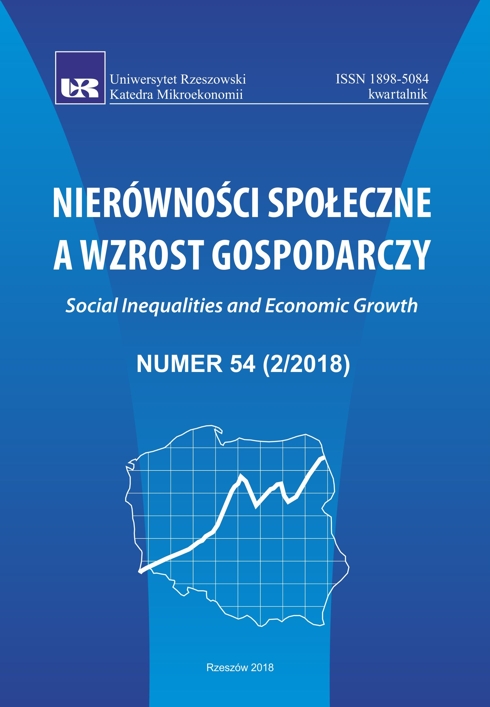New structural economy in the context of integrated development
DOI:
https://doi.org/10.15584/nsawg.2018.2.3Keywords:
development economics, integrated development, Polish economy, economic policy, economic convergence, quality of lifeAbstract
The article’s discourse is based on the assumption that GDP is not the goal of development but the means of its implementation. For this reason, the author postulates the study of the middle income trap from the point of view of broadly understood development, i.e. the ability of the national economy to reduce the development gap in terms of the quality of life of citizens in relation to highly developed countries. In this context, the author points to the lack of sufficiently positive consequences of the modernization of the Polish economy for the quality of life of citizens, convergence in terms of labor productivity and technology. The author presents a critical analysis of prescriptions for development economics recommended to developing countries also from this perspective. There are analyzed comparative advantages as a catching-up tool, recommendations of structural economy and Michał Kalecki’s theory of growth and endogenous theory of growth and consensus of the mainstream of economics. A special place, however, is devoted to the recommendations of the New Structural Economics, which were critically analyzed from the point of view of catching up in the entire integrated development space.Downloads
Published
2020-11-13
How to Cite
Woźniak, M. G. (2020). New structural economy in the context of integrated development. Social Inequalities and Economic Growth, 2(54), 34–52. https://doi.org/10.15584/nsawg.2018.2.3
Issue
Section
Articles
License
Copyright (c) 2018 University of Rzeszow

This work is licensed under a Creative Commons Attribution-ShareAlike 4.0 International License.


